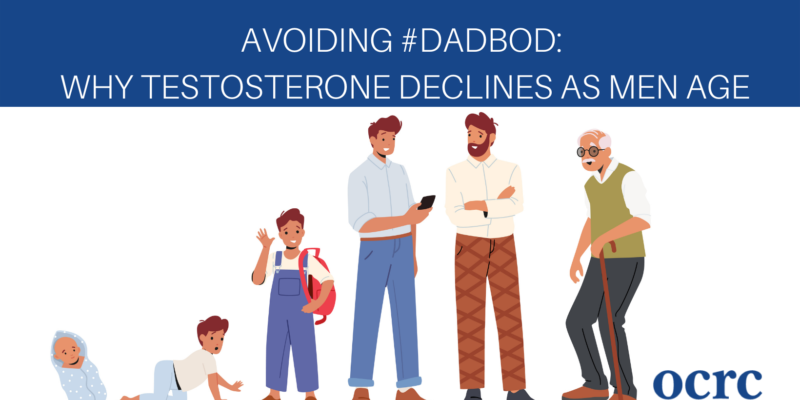
Getting older is a natural part of life. From childhood to puberty, adulthood to geriatric years, our bodies go through countless changes throughout our lifespan.
As men grow older, their testosterone levels gradually decrease. Because it is such a powerful hormone, changes in testosterone levels can have a significant impact on male health.
Testosterone is typically associated with men, with its female counterpart being estrogen. However, both male and female bodies produce testosterone (though at quite different levels).
While individual numbers can vary, most men product at least 300 nanograms per deciliter (ng/dL) of testosterone, with anything below 300 ng/dL being considered low testosterone levels.
Adult women, on the other hand, typically have testosterone levels ranging from 8-60 ng/dL.
Testosterone plays a big part in men’s health: it is responsible for controlling the sex drive and sperm production; it promotes muscle and bone mass; it affects appearance by creating a masculine facial structure; it causes boys’ voices to deepen during puberty. It can also affect mental health and energy levels (including stereotypically masculine aggression and competitiveness).
Because of the significant role testosterone plays in a men’s health and appearance, it’s only logical that as testosterone levels change over time, health and appearance will change as well.
“Male menopause” refers to the natural decrease in testosterone levels as a direct result of aging. While women’s hormones change relatively quickly as they reach menopause, this isn’t necessarily the case for men.
Instead, men’s testosterone levels tend to steadily decline over a longer period of time as they get older rather than a seemingly sudden change.
In fact, male testosterone levels are at their highest during puberty and early adulthood. After the age of 30, most men’s testosterone levels will begin a gradual decline.
Because age-related testosterone declines tend to happen so gradually, it’s not always clear whether symptoms are a direct result of hormonal changes or other factors. For example, some common signs of low testosterone may also be signs of obesity, poor diet, mental health issues, substance use, or other underlying health conditions.
That said, common symptoms of low testosterone include:
If you suspect that your testosterone levels are low, talk to your doctor—it’s the only way to get an official diagnosis. Your doctor will perform a blood test, and if needed, discuss the option of testosterone medication.
Testosterone Replacement Therapy, or TRT, is available in the form of an injection, patch, gel, or skin implant. However, depending on your health or fertility plans, your doctor may advise serious consideration of all its pros and cons.
For an all-natural testosterone boost, add foods rich in vitamin D and zinc to your diet, such as:
Of course, be sure to consider your weight and cholesterol levels before stocking up on testosterone-boosting groceries. If you have any health concerns, talk to your doctor before making any significant changes to your diet.
Clinical trials are underway to develop innovative medications for the treatment of low testosterone. Check back with us soon to learn more about an upcoming opportunity at our facility.
